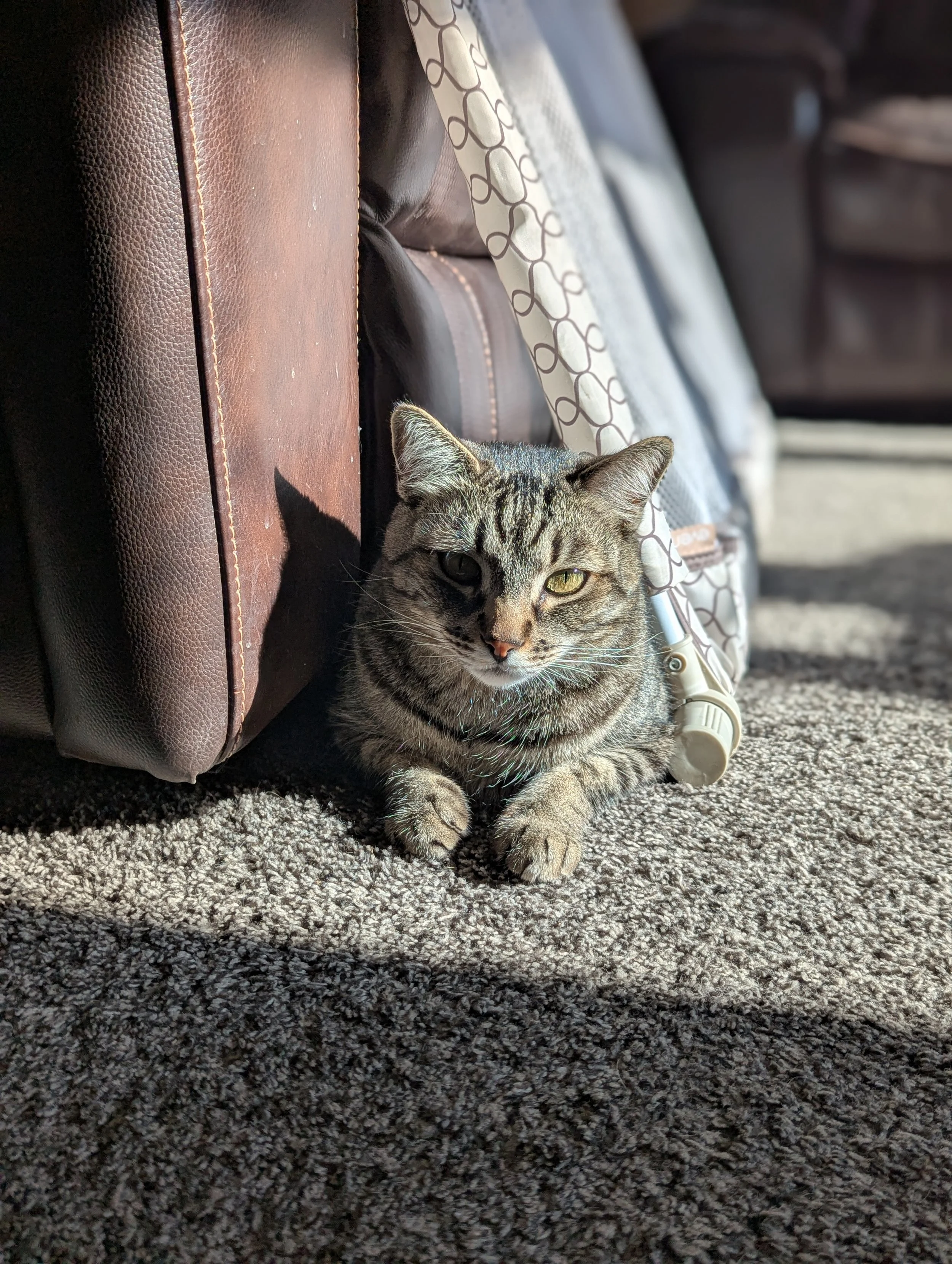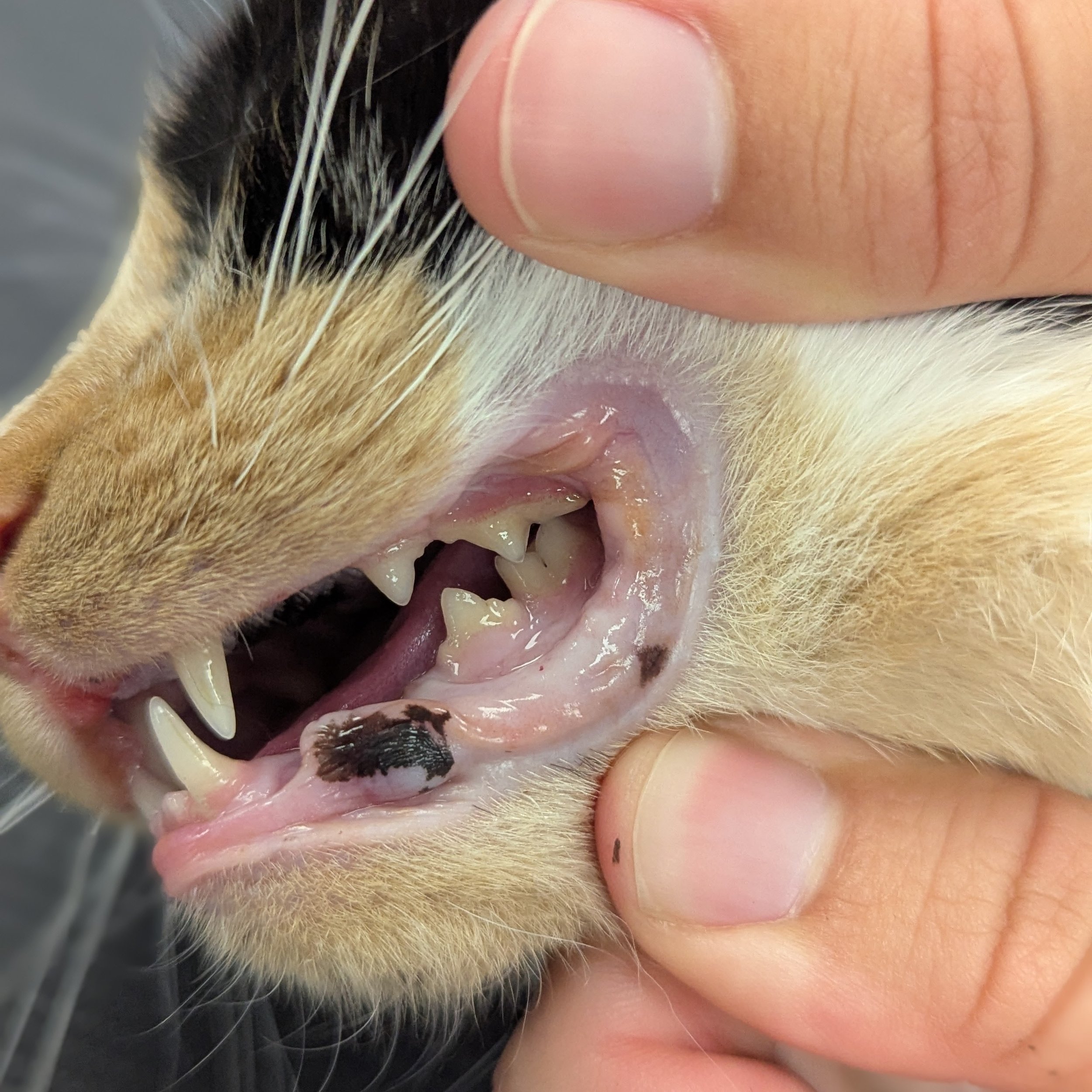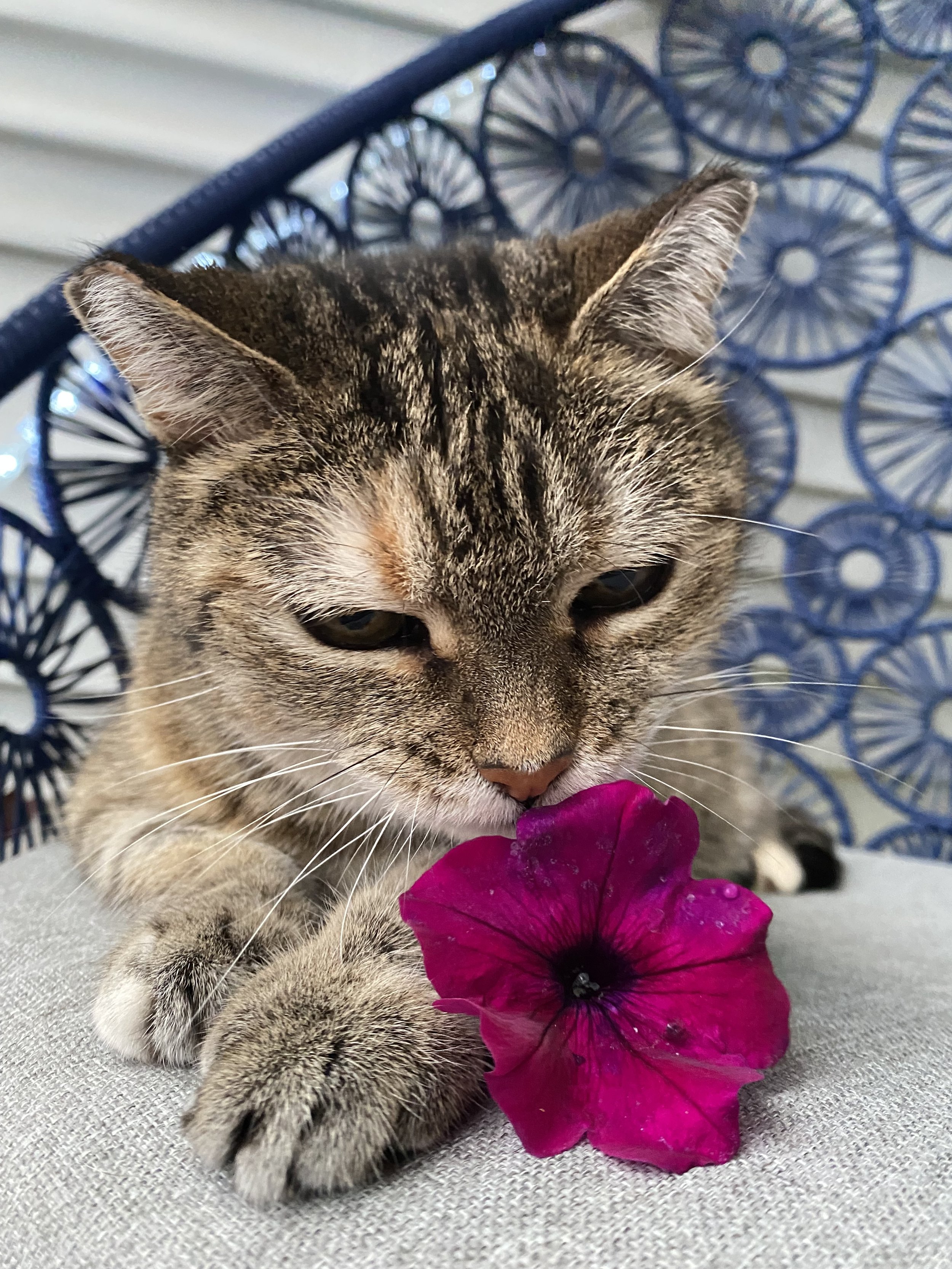
Supporting Your Cat’s Urinary Health Through Environmental Changes
If your cat is having repeated urinary issues, a medical exam and urinalysis are always the first step. But alongside medical treatment, a peaceful, enriched environment can significantly reduce the frequency and severity of urinary flare-ups.
Your cat’s comfort starts at home—and we’re always here to help guide the way.

Feline Tooth Resorption: What Every Cat Owner Should Know
FORLs, also known as tooth resorption, occur when a cat’s own body begins to break down a tooth, starting at the enamel and working inward. Over time, this painful process leads to exposure of the sensitive inner parts of the tooth. Unfortunately, most cats show little to no obvious symptoms until the lesion is severe.

Why Dental Care for Cats Matters More Than You Think
It’s not just tartar buildup we worry about. We’ve found foreign objects stuck under the tongue, fractured teeth, and even the occasional needle lodged in the roof of a cat’s mouth (true story—from a routine neuter appointment!). These issues may cause chronic pain, infection, and difficulty eating, but your cat may simply go on like nothing’s wrong.

Treating Feline Diabetes
A diabetes diagnosis in your cat can feel overwhelming at first, but with the right care plan and support, it becomes a manageable part of daily life. In fact, many cats go on to live full, healthy lives—and some even achieve remission. Here's what to expect when it comes to treating feline diabetes.

Understanding Feline Diabetes
Diabetes mellitus is a common condition in cats, particularly those who are middle-aged to older, overweight, or inactive. Though a diagnosis can feel overwhelming at first, many cats with diabetes go on to live comfortable, happy lives—especially when it's caught early and managed well.

"Why I Bring My Cat to TRVH": A Chat with a Devoted Cat Parent
We recently sat down with Emily, a long-time client of Two Rivers Veterinary Hospital, to talk about her cat, Mochi—and why she chooses TRVH for her care. Mochi is a 7-year-old cat with a big personality and a serious dislike of car rides. Like many cat parents, Emily used to worry that bringing Mochi to the vet would be too stressful for both of them. But Dr. Abby and TRVH changed her mind.

Heart Murmurs in Cats: What You Should Know About Hypertrophic Cardiomyopathy (HCM)
In hypertrophic cardiomyopathy, the muscular walls of the left ventricle (the main pumping chamber of the heart) become abnormally thick. This reduces the heart’s ability to fill with blood and, over time, can lead to heart failure or dangerous blood clots. HCM is the most common form of heart disease in cats, particularly in breeds like Maine Coons, Ragdolls, and American Shorthairs, but it can affect any cat—purebred or mixed.

Understanding Heart Murmurs in Dogs and Cats
Hearing that your dog or cat has a heart murmur can be unsettling—but it doesn’t always mean something serious is going on. A heart murmur is an abnormal sound heard during a physical exam with a stethoscope. Instead of the usual “lub-dub” of a healthy heartbeat, a murmur may sound like a whooshing or swishing noise. This happens when there’s turbulent blood flow within the heart.

Why Is My Cat Throwing Up?
At Two Rivers Veterinary Hospital, one of the most common questions we hear from cat owners is, “Why is my cat throwing up?” While an occasional hairball might not be cause for concern, frequent vomiting is a sign that something deeper could be going on—and it’s worth investigating.

Chronic Kidney Disease
CKD is a progressive condition that affects the kidneys' ability to function properly, leading to a range of health issues.

Cat Pee Where It Shouldn’t Be
Few things are more than discovering their feline friend has peed outside of the litter box. While it can feel like a behavioral issue, it’s important to recognize that inappropriate urination is often a sign that something deeper is going on.
